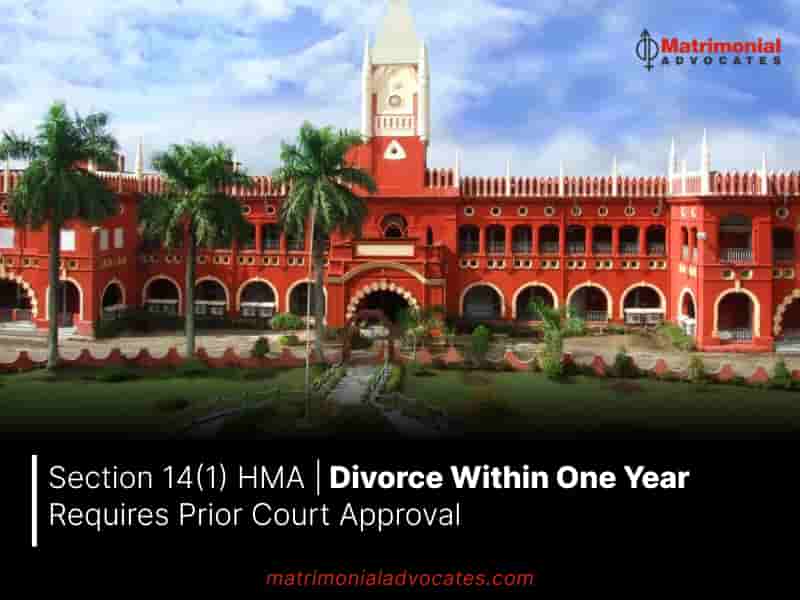
The statutory mandate under Section 14 of the HMA serves a crucial purpose in discouraging hasty dissolution of marriages and ensuring due deliberation before seeking divorce.
Orissa High Court: In an appeal challenging the Family Court’s dismissal of a divorce petition, a Division Bench comprising Justices B.R. Routray and Chittaranjan Dash permitted the husband’s plea, overriding the statutory bar under Section 14 of the Hindu Marriage Act, 1955. The Court exercised its discretionary powers considering the prolonged separation between the spouses and the advanced stage of litigation, thereby waiving the one-year waiting requirement under Section 14.
The couple faced severe marital discord within a month of their marriage. The situation deteriorated further when the respondent-wife left the matrimonial home and declined to return, despite multiple efforts by the husband and his family to reconcile. Attempts at mediation involving elders also failed, as the wife remained adamant about not resuming cohabitation. In 2020, the husband filed for divorce within two months of marriage. He challenged the bar under Section 14 HMA, which restricts the filing of a divorce petition within one year of marriage unless there are exceptional circumstances indicating hardship or moral depravity.
Despite the statutory restriction, the Family Court proceeded to hear the petition, allowing both parties to present evidence and argue the case on its merits, without raising any objection regarding its maintainability. However, the Court ultimately concluded that the husband failed to prove allegations of cruelty or desertion as required under the Hindu Marriage Act. It also noted that he had not made sincere efforts toward reconciliation before initiating divorce proceedings.
The Court stated that Section 14 of HMA creates a statutory bar on the presentation of a divorce petition within one year of marriage, to ensures that matrimonial disputes are not brought prematurely before Courts, allowing spouses uses a reasonable opportunity to reconcile and prevent hasty dissolutions of marriage.
The Court noted that in rare and exceptional circumstances, a strict enforcement of Section 14 of the Hindu Marriage Act may result in undue hardship to a spouse who has genuinely suffered grave cruelty or deprivation shortly after marriage.
Citing the case of Alka Saxena v. Pankaj Saxena, the Court reaffirmed that the bar imposed by Section 14 is mandatory unless a separate application seeking the Court’s permission is filed and approved. Without such an application, the divorce petition is rendered non-maintainable. However, the proviso to Section 14(1) provides limited flexibility, allowing the Court to waive the restriction in cases involving either exceptional hardship to the petitioner or extreme depravity on the part of the respondent.
The Court further emphasized that the discretion to allow an early filing of a divorce petition rests with the Court and must be exercised based on a well-supported application. Even when such permission is granted, the Court may choose to delay the operation of the decree until one year has passed from the date of marriage, or it may dismiss the petition if it determines that the leave was obtained through misrepresentation or concealment of essential facts.
In this case, the Court noted that the marriage took place on 13-05-2020, and the divorce petition was filed on 07-07-2020—just two months later—thus clearly falling within the statutory bar under Section 14 of the Hindu Marriage Act. The Court observed that the Family Court should have dismissed the petition at the outset.
By the time the Family Court rendered its judgment, almost three years had passed since the marriage. In light of the unusual circumstances and the significant time that had elapsed, the Court found it fair and just to remand the case for fresh consideration, rather than dismissing it solely on procedural grounds. The Court also took into account that the parties had been living separately for nearly five years.
Consequently, the Court waived the statutory limitation under Section 14 and granted permission to the husband, directing the Family Court to resolve the matter within four months.
However, the Court clarified that this order should not be regarded as a precedent for permitting divorce petitions that contravene Section 14 of the Hindu Marriage Act.





